EVEN IN VICTORY, YOU |
| GOOD NEWS CAN produce the same disabling shock as tragic news. I stomped around the living room, babbling: “I can’t believe it. I can’t believe it.” Ben, the cat, looked at me as if that proved what he'd always suspected: I was a fool. It was a mix of wonder, disbelief and joy; a destabilizing cocktail of adrenaline and endorphins, stirred, then shaken, and stirred again. Rhode Island had not let down America. Our strange, tiny, sometimes brave, always environmentally stunning, our former Mafia |
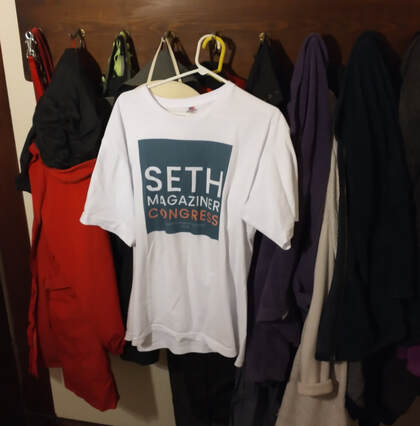
headquarters-by-the-sea, had not allowed one of its two Congressional seats turn from Blue to Red.
Indeed, that was our message when Young and I - plus our pal, Jody McPhillips, a star writer when we were reporting to Young – had gone from door to door to door:
“Your ONE vote can Keep Two Blue.”
Because the race might be that close – polls be damned - sending Seth south to Washington might make the difference in the sharply divided Congress, keeping the entire House of Representatives Blue.
“Just ONE vote.” We believed it, deeply.
The stakes were impossibly high. Not just some Red Shirts vs. Blue Shirts intramural political pickup game: this was democracy itself on the line. Donald Trump had trashed the whole concept of self-government. His barbarians had overrun the Capitol, hoping to cancel the election and, if they got the chance along the way, hoping to murder a vice president and speaker of the House. Trump's forces, and those of his successors, were still at it.
The future of the United States was at stake.
And just ONE vote – “your vote” – could make the difference.
THAT WAS WHAT DROVE us to keep asking for assignments from the campaign. We were not a pretty sight, aging journalists, no longer connected to their media megaphone, limping along sidewalks and streets, candidates not for election, but for replacement of hips, knees and joints that we’d never heard of, seeking votes, one vote at a time – just ONE.
Most people didn’t answer their doorbells – in some cases, that was because they didn’t have doorbells, just holes in doorjambs with wires dangling out of them. Some people were home and pretended they weren’t. Or that they didn’t hear the bells, although their dogs sure did, barking at the windows and pounding frantically on the glass with their claws and paws.
Some people actually answered our knocks and rings. Bless them. In the early days, some weren’t aware there was an election; or they assured us they were voting for “Jim” – as in Jim Langevin, the courageous, wheelchair-bound, Democrat,who’d held the post for 22 years but now was retiring.
Some people vowed they'd never vote. “All politicians are alike,” and not in a good way, they told us.
“They’re a bunch of cheats. Everyone is a liar. The 'system' was/is unfair." And they meant it, too, as if they had personally been betrayed, one-on-one, by an actual office-holder. A few had voted for Biden and now regretted it. "Look at what he's done to the schools," one man said.
The campaign’s strategy was to send us to voters who might have registered or voted in the past as Democrats, but were now “iffy” as to whether they would vote this time, or, if they did, for the wrong reason or person. Everywhere there were lawn signs of the Republican candidate for governor, as well as for Magaziner’s opponent.
Rhode Island is not just a small state, it’s almost a small town, and we sometimes canvassed in Fung’s home-base, Cranston, the city where he’d been a popular mayor for a dozen years; or we'd go door-to-door in Cranston's big neighbor, known to air travelers as PVD – the Providence airport that’s actually called Warwick.
Many in both of those voter-rich cities liked Fung, and one guy claimed to know him personally. “Oh yeah?” I challenged him, as if I were still a reporter, “How do you know him?” The guy answered kindly, as if he understood he was about to make a sad announcement: “I cut his grass.”
The final weeks seemed like the best of summer, not chilly, rainy late-October/ early November. There were warm, sun-soaked leafs on the ground or still on the trees, painting Rhode Island in gentle orange-yellow-brown pastels. People were out and about and some were talkative.
One woman told me she was 99, as she determinedly swept a blanket of leaves with a rake as big as she was. She proudly pointed to a robust spruce tree that she had planted years as a twig, and now had grown into one of her life’s accomplishments.
“I already voted,” she said. I asked for whom. “Well, at my age, I don’t remember.” She asked me about a candidate’s sign on a neighbor's lawn: “Who’s that for?” “The Republican candidate for mayor,” I said. “Oh, a Republican? I don’t like that.”
I wore a “Seth” T-shirt on the theory that was maybe my real contribution: as a walking Magaziner billboard. Sometimes that brought a horn honk and a thumbs-up from a motorist. One bike rider, as he whizzed by, muttered: “Scumbag.”
Indeed, that was our message when Young and I - plus our pal, Jody McPhillips, a star writer when we were reporting to Young – had gone from door to door to door:
“Your ONE vote can Keep Two Blue.”
Because the race might be that close – polls be damned - sending Seth south to Washington might make the difference in the sharply divided Congress, keeping the entire House of Representatives Blue.
“Just ONE vote.” We believed it, deeply.
The stakes were impossibly high. Not just some Red Shirts vs. Blue Shirts intramural political pickup game: this was democracy itself on the line. Donald Trump had trashed the whole concept of self-government. His barbarians had overrun the Capitol, hoping to cancel the election and, if they got the chance along the way, hoping to murder a vice president and speaker of the House. Trump's forces, and those of his successors, were still at it.
The future of the United States was at stake.
And just ONE vote – “your vote” – could make the difference.
THAT WAS WHAT DROVE us to keep asking for assignments from the campaign. We were not a pretty sight, aging journalists, no longer connected to their media megaphone, limping along sidewalks and streets, candidates not for election, but for replacement of hips, knees and joints that we’d never heard of, seeking votes, one vote at a time – just ONE.
Most people didn’t answer their doorbells – in some cases, that was because they didn’t have doorbells, just holes in doorjambs with wires dangling out of them. Some people were home and pretended they weren’t. Or that they didn’t hear the bells, although their dogs sure did, barking at the windows and pounding frantically on the glass with their claws and paws.
Some people actually answered our knocks and rings. Bless them. In the early days, some weren’t aware there was an election; or they assured us they were voting for “Jim” – as in Jim Langevin, the courageous, wheelchair-bound, Democrat,who’d held the post for 22 years but now was retiring.
Some people vowed they'd never vote. “All politicians are alike,” and not in a good way, they told us.
“They’re a bunch of cheats. Everyone is a liar. The 'system' was/is unfair." And they meant it, too, as if they had personally been betrayed, one-on-one, by an actual office-holder. A few had voted for Biden and now regretted it. "Look at what he's done to the schools," one man said.
The campaign’s strategy was to send us to voters who might have registered or voted in the past as Democrats, but were now “iffy” as to whether they would vote this time, or, if they did, for the wrong reason or person. Everywhere there were lawn signs of the Republican candidate for governor, as well as for Magaziner’s opponent.
Rhode Island is not just a small state, it’s almost a small town, and we sometimes canvassed in Fung’s home-base, Cranston, the city where he’d been a popular mayor for a dozen years; or we'd go door-to-door in Cranston's big neighbor, known to air travelers as PVD – the Providence airport that’s actually called Warwick.
Many in both of those voter-rich cities liked Fung, and one guy claimed to know him personally. “Oh yeah?” I challenged him, as if I were still a reporter, “How do you know him?” The guy answered kindly, as if he understood he was about to make a sad announcement: “I cut his grass.”
The final weeks seemed like the best of summer, not chilly, rainy late-October/ early November. There were warm, sun-soaked leafs on the ground or still on the trees, painting Rhode Island in gentle orange-yellow-brown pastels. People were out and about and some were talkative.
One woman told me she was 99, as she determinedly swept a blanket of leaves with a rake as big as she was. She proudly pointed to a robust spruce tree that she had planted years as a twig, and now had grown into one of her life’s accomplishments.
“I already voted,” she said. I asked for whom. “Well, at my age, I don’t remember.” She asked me about a candidate’s sign on a neighbor's lawn: “Who’s that for?” “The Republican candidate for mayor,” I said. “Oh, a Republican? I don’t like that.”
I wore a “Seth” T-shirt on the theory that was maybe my real contribution: as a walking Magaziner billboard. Sometimes that brought a horn honk and a thumbs-up from a motorist. One bike rider, as he whizzed by, muttered: “Scumbag.”
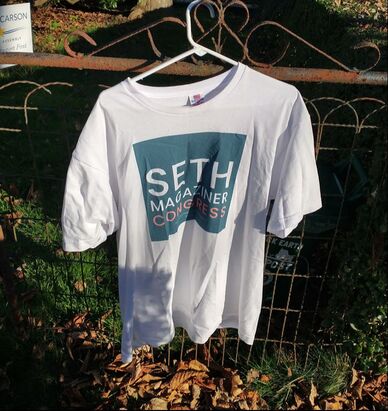
BECAUSE RHODE ISLAND IS SO SMALL – you can drive end-to-end in about an hour, even on the state’s notoriously chewed up roads, you’d think that the door-to-door stuff was simple, and you could meet at least half of the state's one-million residents on any afternoon.
Nope. Even a small state is a lot of territory to cover. It’s possible we visited 300 “doors,” as the campaign’s jargon called its curated addresses on its “turf” lists, possibly a few more than that.Whatever the total, we talked to just a fraction, and at best convinced maybe 15 to vote, and just a few to do so for “our” guy.
I actually thought our impact was minuscule and actually pathetic. But, we all agreed it was better than sitting home, listening to the pundits and prognosticators, doomsayers, sneering at the Democrats, whipping up images of the Red Wave rolling over the Ocean State.
We kept each other’s spirits up, even after the campaign was over. McPhillips, who put in a long Election Night as an official Providence city poll worker, emailed me the day after:
“My personal belief is that Fung would have triumphed had you not knocked on every (word used in newsrooms, but never printed) door in the 2nd district. Well done!”
Absolutely untrue. The campaign’s software indicated that McPhillips went to more “doors” than I did. And if you add in those that Young visited, and the extra ones she insisted we try, as if she were still handing out reporting assignments, I was always outmatched.
But we weren’t alone.
I don’t know how big a staff and volunteer force Magaziner jsf fielded. In the end, he ran a combined campaign with Gov. Dan McKee (who won big), and Magaziner had huge labor union support – his campaign chief was the daughter of a top AFL-CIO official, and one of his field offices was in a Carpenters Union hall.
I met a friend who was a veteran of progressive causes, and who lived in the same section of Cranston where I was assigned one day. She told me how she personally was organizing that neighborhood, canvassing day after day and planning a big push the day before, and the day of, the election.
And there were telltale clues that some of our assigned territories had already been visited : Seth campaign cards stuffed into door jams, faded and lying on welcome mats.
It’s possible that scores, maybe hundreds of individual and team efforts built up; and as the polls were showing Fung ahead, more and more people became as driven as we were to do their part, so that all of these combined into a critical mass that virtually willed Rhode Island not let America down.
Maybe the TV debates helped. Magaziner, state treasurer for seven years, got stronger and stronger with each one. Maybe Rhode Island Democrats tolerated Fung as a small city Republican mayor, but would not like to have a Republican in Congress. Maybe Rhode Island was just too Blue, even for a well-liked Republican.
Nobody really, actually could explain it.
But this I know, for sure.
Election Night was magical. But it was just one night, just one election.
The U.S. has become a country where every election is a desperate, do-or-die event, with democracy always on a cliff's edge. It never ends.
As much, or as little, that we can all do, we cannot rest, because it will never be over. That is what Donald Trump and his thugs have done to our democracy, one that we can never take for granted.
Victories don’t last.
There will never be a time, not in our lifetimes, when we can hang up our Magaziner T-shirts.
Nope. Even a small state is a lot of territory to cover. It’s possible we visited 300 “doors,” as the campaign’s jargon called its curated addresses on its “turf” lists, possibly a few more than that.Whatever the total, we talked to just a fraction, and at best convinced maybe 15 to vote, and just a few to do so for “our” guy.
I actually thought our impact was minuscule and actually pathetic. But, we all agreed it was better than sitting home, listening to the pundits and prognosticators, doomsayers, sneering at the Democrats, whipping up images of the Red Wave rolling over the Ocean State.
We kept each other’s spirits up, even after the campaign was over. McPhillips, who put in a long Election Night as an official Providence city poll worker, emailed me the day after:
“My personal belief is that Fung would have triumphed had you not knocked on every (word used in newsrooms, but never printed) door in the 2nd district. Well done!”
Absolutely untrue. The campaign’s software indicated that McPhillips went to more “doors” than I did. And if you add in those that Young visited, and the extra ones she insisted we try, as if she were still handing out reporting assignments, I was always outmatched.
But we weren’t alone.
I don’t know how big a staff and volunteer force Magaziner jsf fielded. In the end, he ran a combined campaign with Gov. Dan McKee (who won big), and Magaziner had huge labor union support – his campaign chief was the daughter of a top AFL-CIO official, and one of his field offices was in a Carpenters Union hall.
I met a friend who was a veteran of progressive causes, and who lived in the same section of Cranston where I was assigned one day. She told me how she personally was organizing that neighborhood, canvassing day after day and planning a big push the day before, and the day of, the election.
And there were telltale clues that some of our assigned territories had already been visited : Seth campaign cards stuffed into door jams, faded and lying on welcome mats.
It’s possible that scores, maybe hundreds of individual and team efforts built up; and as the polls were showing Fung ahead, more and more people became as driven as we were to do their part, so that all of these combined into a critical mass that virtually willed Rhode Island not let America down.
Maybe the TV debates helped. Magaziner, state treasurer for seven years, got stronger and stronger with each one. Maybe Rhode Island Democrats tolerated Fung as a small city Republican mayor, but would not like to have a Republican in Congress. Maybe Rhode Island was just too Blue, even for a well-liked Republican.
Nobody really, actually could explain it.
But this I know, for sure.
Election Night was magical. But it was just one night, just one election.
The U.S. has become a country where every election is a desperate, do-or-die event, with democracy always on a cliff's edge. It never ends.
As much, or as little, that we can all do, we cannot rest, because it will never be over. That is what Donald Trump and his thugs have done to our democracy, one that we can never take for granted.
Victories don’t last.
There will never be a time, not in our lifetimes, when we can hang up our Magaziner T-shirts.
1 Comment
Neale
11/10/2022 02:17:41 pm
Your hard work paid off... and the hard work of many others. Celebrate!
Reply
Leave a Reply.
BRIAN C. JONES
I'VE BEEN a reporter and writer for 60 years, long enough to have learned that journalists don't know very much, although I've met some smart ones.
Mainly, what reporters know comes from asking other people questions and fretting about their answers.
This blog is a successor to one inspired by our dog, Phoebe, who was smart, sweet and the antithesis of Donald Trump. She died Feb. 3, 2022, and I don't see getting over that very soon.
Occasionally, I think about trying to reach her via cell phone.
Mainly, what reporters know comes from asking other people questions and fretting about their answers.
This blog is a successor to one inspired by our dog, Phoebe, who was smart, sweet and the antithesis of Donald Trump. She died Feb. 3, 2022, and I don't see getting over that very soon.
Occasionally, I think about trying to reach her via cell phone.
July 2024
June 2024
May 2024
April 2024
March 2024
February 2024
January 2024
December 2023
November 2023
October 2023
September 2023
August 2023
July 2023
June 2023
May 2023
April 2023
March 2023
February 2023
January 2023
November 2022
October 2022
September 2022
August 2022
July 2022
June 2022
May 2022
April 2022
March 2022
February 2022
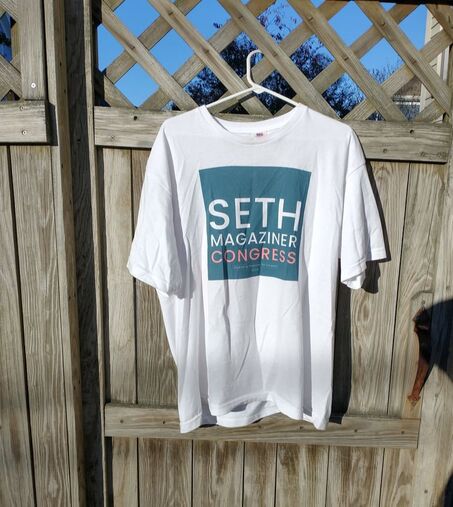
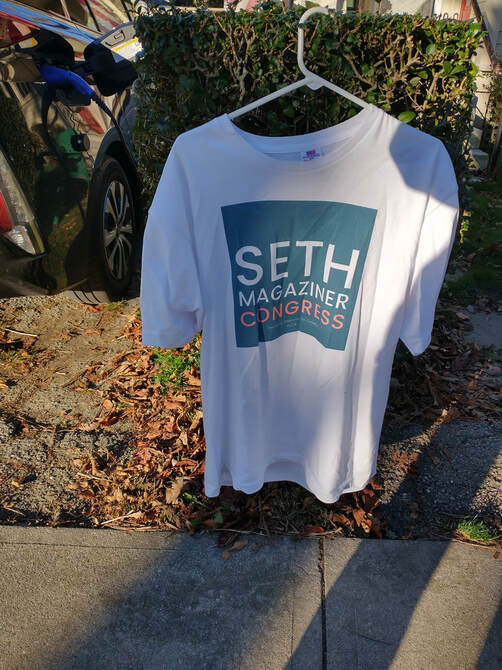
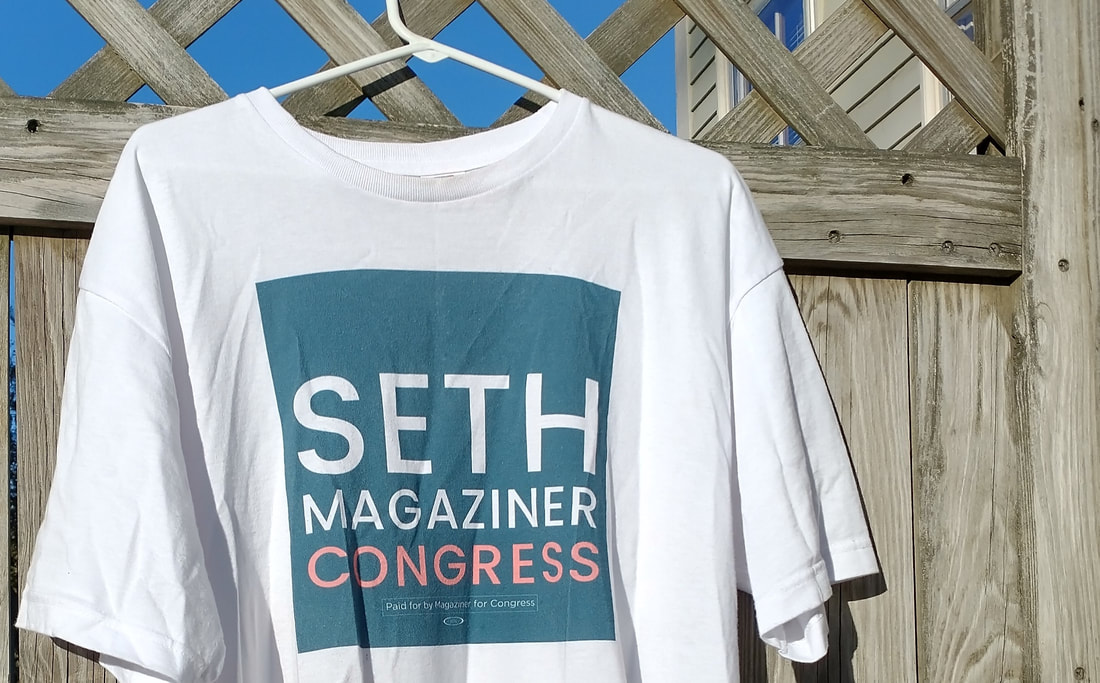
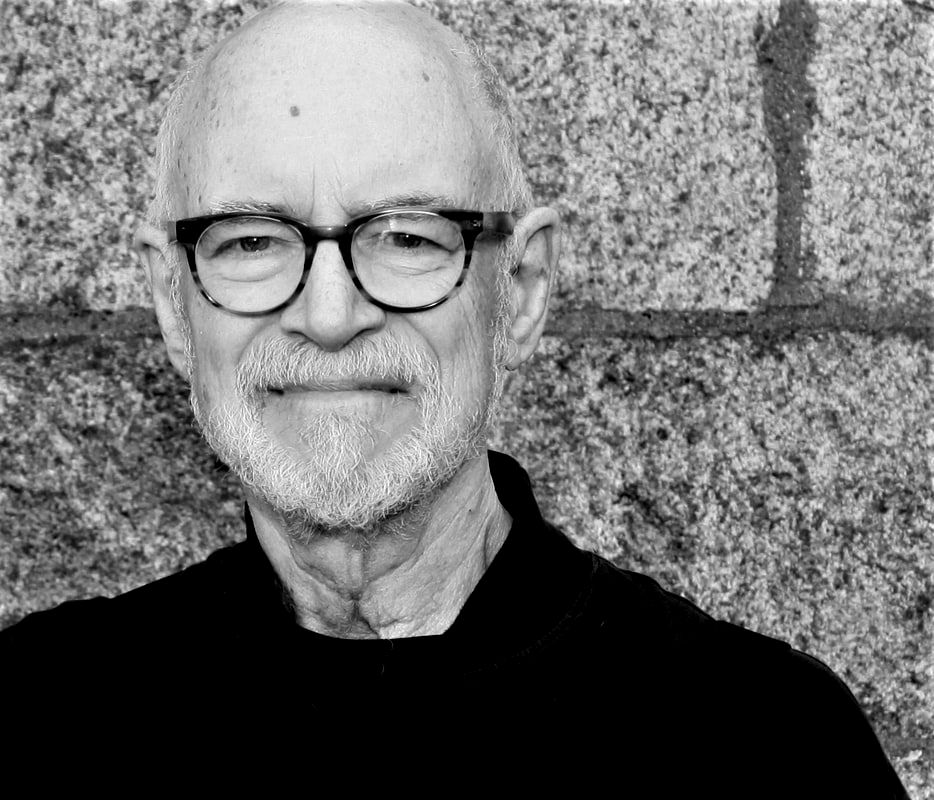
 RSS Feed
RSS Feed